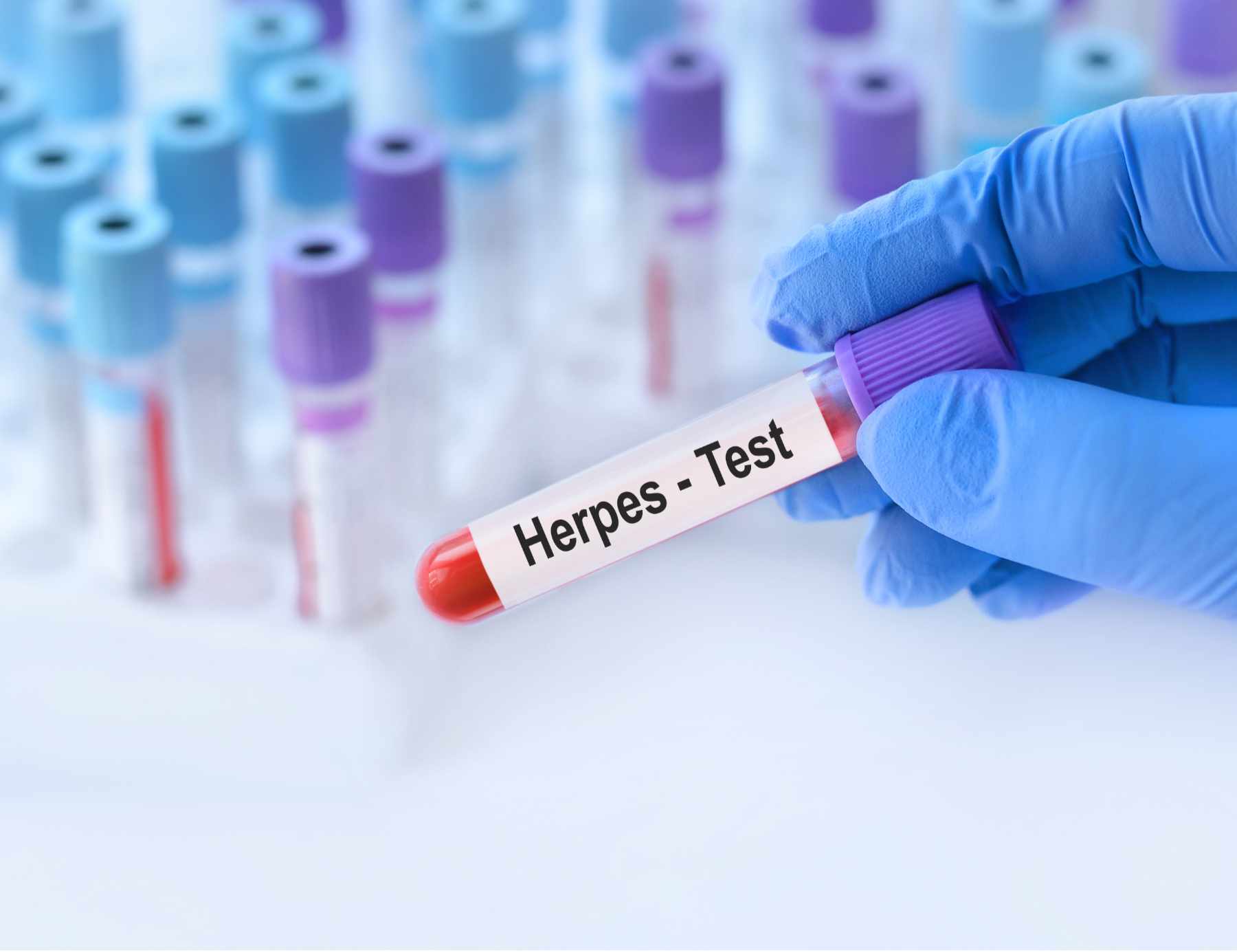ChatRx uses advanced AI to accurately diagnose the symptoms of Oral herpes and prescribe medications as needed.
**Not for emergency use. Care is provided with physician oversight. AI assists clinical workflow only. For concerning or urgent symptoms, call 911.

Oral herpes, also known as cold sores or fever blisters, is a highly contagious viral infection that primarily affects the lips, mouth, and surrounding areas. This condition is caused by the herpes simplex virus (HSV-1) and is characterized by the development of painful, fluid-filled blisters that often recur throughout a person’s lifetime. While oral herpes is generally not a serious condition, it can be uncomfortable and unsightly, and it is important to understand how to manage and prevent its transmission.
If you have any signs or symptoms of Oral herpes, we encourage you to use our AI system to assess your symptoms.
The ChatRx Free Symptom Checker is Available!
What is Oral Herpes?
- A highly contagious viral infection caused by the herpes simplex virus (HSV-1)
- Primarily affects the lips, mouth, and surrounding areas
- Characterized by the development of painful, fluid-filled blisters
- Often recurs throughout a person’s lifetime
Causes of Oral Herpes
- Exposure to the herpes simplex virus (HSV-1) through direct contact with infected individuals or contaminated surfaces
- Reactivation of the virus in individuals who have previously been infected, often triggered by stress, illness, or other factors
Preventing Oral Herpes
- Avoid direct contact with infected individuals or their personal items, such as utensils or towels
- Maintain good hygiene, including frequent handwashing and avoiding touching or picking at sores
- Manage stress and maintain a healthy immune system to reduce the risk of viral reactivation
Symptoms of Oral Herpes
- Tingling, burning, or itching sensation around the lips or mouth
- Development of painful, fluid-filled blisters or sores
- Redness, swelling, and tenderness in the affected area
- Potential for the blisters to rupture and form crusty, open sores
Treating Oral Herpes
- Over-the-counter topical creams or ointments containing antiviral medications, such as acyclovir or docosanol
- Prescription-strength antiviral medications, such as valacyclovir or famciclovir, for more severe or recurrent cases
- Keeping the affected area clean and applying cold compresses to alleviate pain and discomfort
Self-Care for Oral Herpes
- Avoid touching or picking at the sores, as this can worsen the infection and increase the risk of spreading it
- Apply over-the-counter topical creams or ointments as directed to help alleviate symptoms
- Maintain good oral hygiene and use lip balm to prevent further irritation
Antiviral Medications for Oral Herpes
- Over-the-counter topical creams or ointments containing acyclovir or docosanol
- Prescription-strength oral antiviral medications, such as valacyclovir or famciclovir, for more severe or recurrent cases
Risk Factors for Oral Herpes
- Direct contact with infected individuals or contaminated surfaces
- Weakened immune system due to underlying medical conditions or certain medications
- Stress, illness, or other factors that can trigger viral reactivation
Oral herpes is a common and often recurring viral infection that can be managed with the right treatment and preventive measures. By understanding the causes, symptoms, and proper care for this condition, individuals can take steps to minimize the discomfort and spread of oral herpes.
Early signs specific to oral herpes often include:
- Tingling or burning before blisters appear
- Clusters of small, fluid-filled blisters
- Predictable outbreak patterns
- Recurring in the same area
Unsure about your symptoms? ChatRx’s assessment tool can help identify typical herpes patterns.
Without treatment, outbreaks usually last 7-10 days, following this pattern:
- Day 1-2: Tingling and redness
- Day 2-4: Blister formation
- Day 4-5: Blisters burst
- Day 5-8: Scabbing
- Day 8-10: Healing
Yes, the virus can spread through shared items, especially during an active outbreak. Avoid sharing:
- Drinks and straws
- Eating utensils
- Lip products
- Towels
- Toothbrushes
Common triggers include:
- Stress or anxiety
- Sunlight exposure
- Hormonal changes
- Illness or fever
- Dental work
- Fatigue
Experiencing frequent outbreaks? Let ChatRx help identify your potential triggers.
While the risk is lower without visible sores, transmission is still possible through asymptomatic shedding. Discuss with your partner and consider:
- Using antiviral medications
- Avoiding kissing during prodromal symptoms
- Being aware of your typical outbreak patterns
While both conditions are caused by herpes viruses, having oral herpes (typically HSV-1) doesn’t mean you’ll automatically get genital herpes (typically HSV-2). However, oral herpes can potentially spread to the genital area through oral contact.
Dental procedures might need to be postponed during active outbreaks. Important considerations:
- Inform your dentist about your history of oral herpes
- Schedule appointments when you’re outbreak-free
- Some procedures might trigger outbreaks
- Preventive antiviral medication might be recommended
Yes, managing stress can reduce outbreak frequency. Effective approaches include:
- Regular exercise
- Meditation or mindfulness
- Adequate sleep
- Balanced nutrition
- Time management techniques
